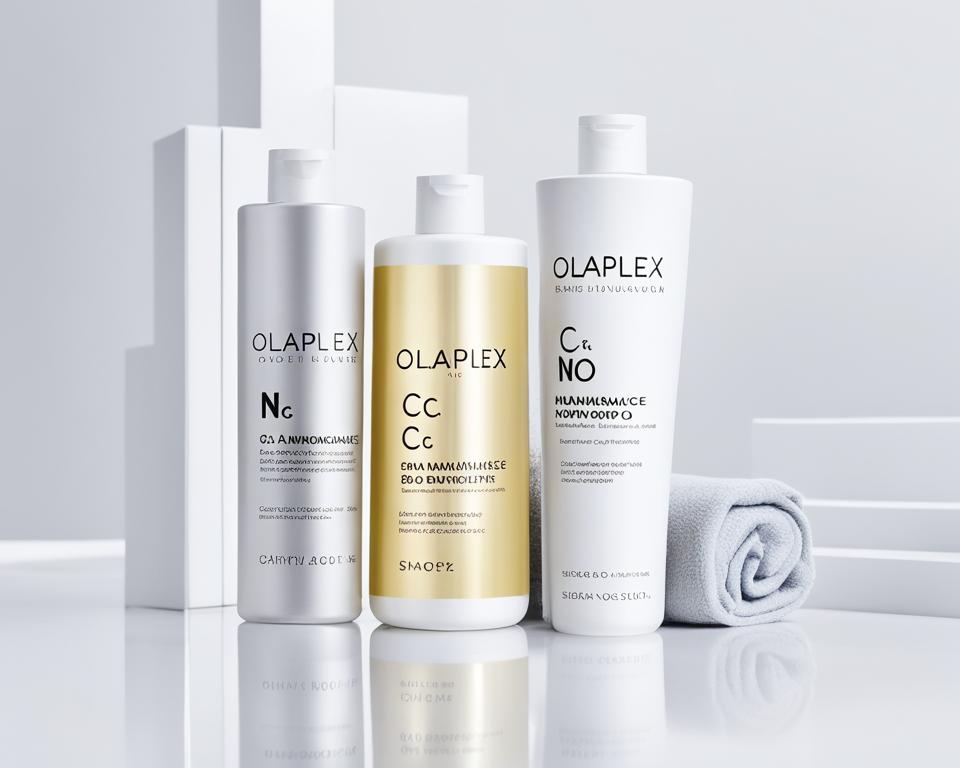Finding the right vitamin C products can be tricky, especially for sensitive skin. It’s important to look for options that brighten, protect, and nourish without causing irritation. Luckily, there are many gentle yet effective vitamin C products out there.
This guide will show you the top vitamin C options for sensitive skin. We’ll cover the benefits of this antioxidant and help you understand what makes skin sensitive. You’ll learn how to pick the best vitamin C products for your skin type.
Are you looking for a brightening serum, a hydrating cream, or a targeted treatment? This article will give you the insights you need to find the best vitamin C for sensitive skin. You’ll learn how to choose products that work well with your skin without causing irritation.
Read more interesting information at ::lesdamesmiami
What is Vitamin C and Why is it Important for Skin?
Vitamin C is a key antioxidant that keeps our skin healthy and beautiful. It brightens our skin and helps make more collagen. Collagen is a protein that keeps our skin firm, plump, and young.
Understanding the Benefits of Vitamin C
Vitamin C benefits for skin include fighting free radicals. These molecules can cause wrinkles and other signs of aging. Vitamin C stops these harmful molecules, protecting our skin from the sun and pollution.
Vitamin C also helps our skin heal. It makes new skin cells, reducing dark spots and age marks. This makes importance of vitamin c in skincare vital for a good skincare routine.
The Role of Antioxidants in Skincare
Antioxidants, like antioxidant skin serum, keep our skin healthy and bright. They neutralize free radicals that can harm our skin. Adding antioxidants, such as vitamin C, to our skincare helps protect against environmental damage. This leads to a younger, glowing look.
“Vitamin C is a game-changer for the skin, providing a host of benefits that go far beyond just brightening the complexion. Its powerful antioxidant properties make it an essential ingredient for maintaining healthy, glowing skin.”
Causes of Sensitive Skin and Irritation
Sensitive skin can be a complex and frustrating issue. It has many underlying causes. Knowing what can make skin sensitive is key when picking skincare products, like those with vitamin C.
Genetics is a big reason for sensitive skin. Some people are born with a skin barrier that’s not strong. This makes their skin more likely to get irritated and inflamed. Things like harsh weather, pollution, and harsh skincare can also make skin sensitive and inflamed.
- Skin conditions like eczema, rosacea, and allergies can make skin more sensitive.
- Using harsh, drying, or irritating skincare products can upset the skin’s balance and cause irritation.
- Hormonal changes, stress, and some medicines can also make skin sensitive.
Knowing what causes sensitive skin helps people take care of their skin. This way, they can make sure their vitamin C and other skincare products help, not hurt.
Best Vitamin C for Sensitive Skin: Top Gentle Options
For those with sensitive skin, picking the right vitamin C is key. Vitamin C helps brighten, firm, and fight free radicals. But, some forms can irritate sensitive skin. Luckily, there are gentle vitamin C options made just for sensitive skin.
Vitamin C Derivatives for Sensitive Skin
Ascorbyl glucoside is a gentle vitamin C type that won’t cause redness or dryness. Tetrahexyldecyl ascorbate, a gentle vitamin C ester, is also great for sensitive skin. These options give you vitamin C’s benefits without irritation.
Stable Vitamin C Formulations
The type of vitamin C and how it’s put together matter for sensitive skin. Choose stable vitamin C derivatives with skin-friendly vitamin C and other soothing ingredients. These gentle vitamin C formulations keep the vitamin C safe and nourish your skin.
| Vitamin C Derivative | Skin Tolerance | Stability |
|---|---|---|
| Ascorbyl Glucoside | Very Gentle | Stable |
| Tetrahexyldecyl Ascorbate | Gentle | Stable |
| L-Ascorbic Acid | Can be Irritating | Less Stable |
Choosing the Right Vitamin C Concentration
When picking a vitamin C product for sensitive skin, the concentration matters a lot. The right amount depends on your skin type and how it reacts to products. It’s important to know the difference between low and high concentrations to find what works best for you.
Low vs. High Vitamin C Concentrations
If you have sensitive skin, start with a lower vitamin C level. These usually range from 5% to 15%. They offer antioxidant benefits and brighten the skin gently. But, higher levels, above 20%, can be stronger and better for things like dark spots and uneven skin tone. However, they might irritate sensitive skin more.
Choosing between low or high vitamin C should depend on how your skin reacts. Start with a lower level and slowly increase it as your skin gets used to it.
| Vitamin C Concentration | Potential Benefits | Potential Risks for Sensitive Skin |
|---|---|---|
| 5-15% |
|
|
| 20% or higher |
|
|
The best vitamin C concentration for sensitive skin is one that works well without causing irritation. Try different products and slowly increase the strength to find what suits you best.
Incorporating Vitamin C into Your Skincare Routine
Adding vitamin C to your skincare for sensitive skin needs care. To get the most out of this powerful antioxidant without irritation, here are tips. These will help you understand how to use vitamin c for sensitive skin and incorporating vitamin c into skincare routine.
Start with a small amount. Begin with a few drops or a pea-sized amount once or twice a week. This helps your skin get used to the active ingredient without irritation. Gradually add more as your skin gets used to it.
Use vitamin C in the morning. It works best during the day to fight off environmental damage. Choose a gentle serum and apply sunscreen after for the best effect.
- Clean your face well before applying vitamin C for better absorption.
- Apply the serum gently, avoiding the delicate eye area.
- Let the serum soak in before putting on moisturizer and sunscreen.
Combine vitamin C with soothing ingredients. Look for products that mix vitamin C with calming plants like aloe, chamomile, or green tea. These can help reduce any sensitivity from the vitamin.
| Ingredient | Benefit |
|---|---|
| Aloe Vera | Soothes and hydrates sensitive skin |
| Chamomile | Reduces inflammation and redness |
| Green Tea | Provides antioxidant protection |
By following these steps, you can seamlessly incorporate vitamin C into your sensitive skin routine. Enjoy a brighter, more glowing complexion.
Vitamin C with Ferulic Acid: A Powerful Combination
The mix of vitamin C and ferulic acid is a big win for skin care, especially for sensitive skin. This duo tackles many skin issues, like early aging and uneven tone.
Benefits of Ferulic Acid
Ferulic acid is a plant-based antioxidant that boosts vitamin C’s effects on the skin. Here are its main perks for your vitamin C routine:
- Enhanced Antioxidant Protection – Ferulic acid and vitamin C together shield the skin from harm and damage.
- Improved Stability – Ferulic acid keeps vitamin C fresh and potent, giving you the best results.
- Brightening and Pigment Reduction – This combo helps even out skin tone and reduce dark spots for a brighter look.
- Photoprotection – Ferulic acid adds an extra shield against the sun’s harmful rays.
Using vitamin C and ferulic acid together in your skincare routine offers a gentle yet effective way to tackle various skin issues.

“Pairing vitamin C with ferulic acid creates a powerhouse of skin-enhancing benefits, making it an essential addition to any skincare regimen, especially for those with sensitive skin.”
Non-Irritating Vitamin C Serums and Creams
Finding the right vitamin C product for sensitive skin can be tough. But, there are gentle options that won’t irritate your skin. They offer the benefits of vitamin C without the irritation. Look for non-irritating vitamin C serums and creams made for sensitive skin care.
Gentle Formulations for Sensitive Skin
For sensitive skin, choose gentle vitamin C formulations. Use stable forms like ascorbyl glucoside or sodium ascorbyl phosphate. These are less drying and won’t cause redness or stinging like pure L-ascorbic acid can.
- Products with soothing ingredients like aloe vera, chamomile, and glycerin help calm irritation.
- Avoid formulas with fragrances, alcohol, or other irritants.
- Start with a low concentration (10% or less) and slowly increase as your skin gets used to it.
Choosing the right non-irritating vitamin C product lets you enjoy its benefits safely. Your sensitive skin will stay healthy and comfortable.
Signs of Irritation and When to Stop Using Vitamin C
Vitamin C is known for making the skin look better. But, it’s important to watch out for irritation, especially if your skin is sensitive. Knowing the signs of irritation helps you know when to stop using vitamin C products and find gentler ones.
Common signs of irritation from vitamin C include redness, stinging, itching, and dryness. If you see any of these, stop using it right away. Talk to a dermatologist or skincare expert for advice.
When to stop using vitamin C depends on your skin type and the product you’re using. If your skin gets more sensitive or irritated, stop using it. Let your skin heal before trying a gentler vitamin C product.
- Pay attention to your skin’s reaction and be mindful of any signs of irritation.
- Discontinue use if you experience redness, stinging, itching, or excessive dryness.
- Consult a skincare professional for personalized recommendations on when to stop using vitamin C for sensitive skin.
“Preserving the health and integrity of your skin should always be the top priority when incorporating new products into your routine.”
Listen to what your skin needs and act quickly if it gets irritated. This way, using vitamin C can be good for your sensitive skin.
Vitamin C for Brightening and Hyperpigmentation
Vitamin C is a key ingredient for tackling hyperpigmentation and uneven skin tone. It stops the production of melanin, which causes dark spots and discoloration.
Addressing Uneven Skin Tone
For sensitive skin, vitamin C is a gentle yet powerful option. It fights off free radicals that lead to hyperpigmentation. It also boosts collagen production for a brighter, younger look.
When choosing a vitamin C product for sensitive skin, pick ones with stabilized forms. Look for ascorbyl glucoside or sodium ascorbyl phosphate. These types of vitamin C are gentler and won’t irritate your skin.
| Vitamin C Derivative | Benefits for Sensitive Skin |
|---|---|
| Ascorbyl Glucoside | Gradually releases vitamin C for a gentle, non-irritating effect |
| Sodium Ascorbyl Phosphate | Highly stable and less acidic than L-ascorbic acid |
Using brightening vitamin C in your skincare can make uneven skin tone and hyperpigmentation less visible. It does this without harming sensitive skin.
“Vitamin C is a game-changer for anyone dealing with discoloration or dullness. The key is finding the right formulation that won’t cause irritation.”
Combining Vitamin C with Other Skincare Ingredients
Vitamin C is a strong antioxidant that works well with other skincare ingredients. It helps sensitive skin types. When you mix vitamin C with the right ingredients, you get a skincare routine that works better.
Ferulic acid is great with vitamin C. It also fights environmental stress and free radicals. Together, they make your skin brighter, reduce wrinkles, and even out your skin tone.
Hyaluronic acid is another good match for vitamin C. It keeps your skin hydrated and plump. Vitamin C helps with collagen production and skin health. This mix tackles aging signs, improves skin texture, and makes your skin glow.
If you have sensitive skin, pick vitamin C products with calming ingredients like niacinamide or green tea. These help reduce redness and inflammation. They let your skin enjoy vitamin C’s benefits safely.
| Ingredient | Benefits |
|---|---|
| Ferulic Acid | Enhances the antioxidant effects of vitamin C, helps protect against environmental stressors, and improves skin brightness and tone. |
| Hyaluronic Acid | Deeply hydrates the skin, plumps and improves skin texture, and supports the skin’s collagen production. |
| Niacinamide | Reduces inflammation and redness, regulates sebum production, and brightens the complexion. |
| Green Tea | Provides soothing and calming benefits, helps to reduce irritation, and offers antioxidant protection. |
Adding these ingredients to your vitamin C skincare routine is a smart move. You get the best of vitamin C’s brightening and anti-aging effects. Plus, you get the soothing and nourishing benefits of other ingredients. This is great for sensitive skin types who want to use vitamin C safely and effectively.
Best Practices for Storing and Using Vitamin C Products
Storing and using vitamin C products right is key to keeping them effective. Following best practices helps extend the shelf life of vitamin C. This ensures you get the best from these powerful skincare items.
Extending the Shelf Life
To maximize the shelf life of vitamin C products, here are some tips:
- Keep them in a cool, dark spot. Light and heat can break down vitamin C, making it less effective.
- Don’t store vitamin C serums and creams in the bathroom. The humid air can speed up oxidation.
- Always keep the containers closed when not in use. Air can make vitamin C degrade faster.
- Look for a vitamin C product with vitamin E or ferulic acid. These ingredients help protect the vitamin C and make it last longer.
- Check expiration dates and throw away any vitamin C products that are past their best. Oxidized vitamin C can be less effective or even irritate your skin.
By sticking to these easy storage and use tips, you can maximize the efficacy and extend the shelf life of your vitamin C products. This leads to healthier, glowing skin.
| Storage Tip | Benefit |
|---|---|
| Store in a cool, dark place | Prevents degradation of vitamin C |
| Avoid bathroom storage | Reduces exposure to humidity |
| Keep containers tightly sealed | Minimizes air exposure |
| Use stabilized vitamin C formulas | Extends product shelf life |
| Check expiration dates | Ensures potency and safety |
Professional Recommendations for Sensitive Skin Types
Dermatologists and skincare experts have great advice for adding vitamin C to sensitive skin routines. They know how to make sure vitamin C works well without causing irritation. This is key for sensitive skin.
Dr. Emma Cleary, an expert in sensitive skin, says to start with a small amount of vitamin C. “Sensitive skin likes gentle, stable vitamin C products better than pure ascorbic acid,” she explains.
“The key is to start with a low concentration of vitamin C and slowly work your way up. Sensitive skin types often do better with more gentle, stable formulations that contain vitamin C derivatives rather than pure ascorbic acid.” – Dr. Emma Cleary, Dermatologist
Sarah Jenson, a skincare expert, also stresses the need to fix sensitive skin issues before using vitamin C. “First, make sure your skin’s barrier is strong and treat any conditions like rosacea or eczema. Then, you can slowly add a vitamin C product that fits your skin’s needs.”
| Dermatologist Recommendations | Skincare Expert Advice |
|---|---|
|
|
Following the advice of experts, people with sensitive skin can safely try vitamin C. They can get a brighter, more even skin tone without harming their skin.

Frequently Asked Questions About Vitamin C for Sensitive Skin
If you have sensitive skin, you might wonder about using vitamin C in your skincare. Let’s answer some common questions to help you use this antioxidant safely and effectively.
Is Vitamin C Safe for Sensitive Skin?
Yes, vitamin C can be safe for sensitive skin if you pick the right type. Look for gentle forms like ascorbyl glucoside or sodium ascorbyl phosphate. These are less likely to irritate your skin. Start with a low concentration and slowly increase it.
Can Vitamin C Cause Redness or Irritation?
Vitamin C is usually safe, but it might cause redness or dryness in very sensitive skin at first. This means the concentration is too high or your skin is adjusting. Try using less of it or using it less often to see if the irritation goes away.
How Often Should I Use Vitamin C for Sensitive Skin?
- Start with vitamin C 1-2 times a week.
- Gradually increase to every other day or daily if it suits your skin.
- Watch for irritation and use less if needed.
It’s important to add vitamin C slowly and watch how your skin reacts. With some trial and error, you can find the right amount for your skin.
“Vitamin C is a powerful antioxidant that can benefit all skin types, including sensitive, when used properly.” – Dr. Sarah Barlow, Dermatologist
Remember, everyone’s skin is different. Don’t give up if the first vitamin C product doesn’t work. Keep trying gentle, well-formulated options until you find one that makes your skin look great.
Conclusion
We’ve looked into the best vitamin C for sensitive skin and found its amazing benefits. This ingredient can change how your skin looks. It helps brighten your skin and fights off damage.
Choosing the right vitamin C is key, especially if your skin is sensitive. Look for stable forms of vitamin C or try it with other ingredients like ferulic acid. This way, you can find a product that works well with your skin.
Remember, getting the results you want takes time and patience. Add vitamin C to your daily skincare routine. Watch out for any signs of irritation. By taking care of your skin, you’ll see how vitamin C can make a big difference.



